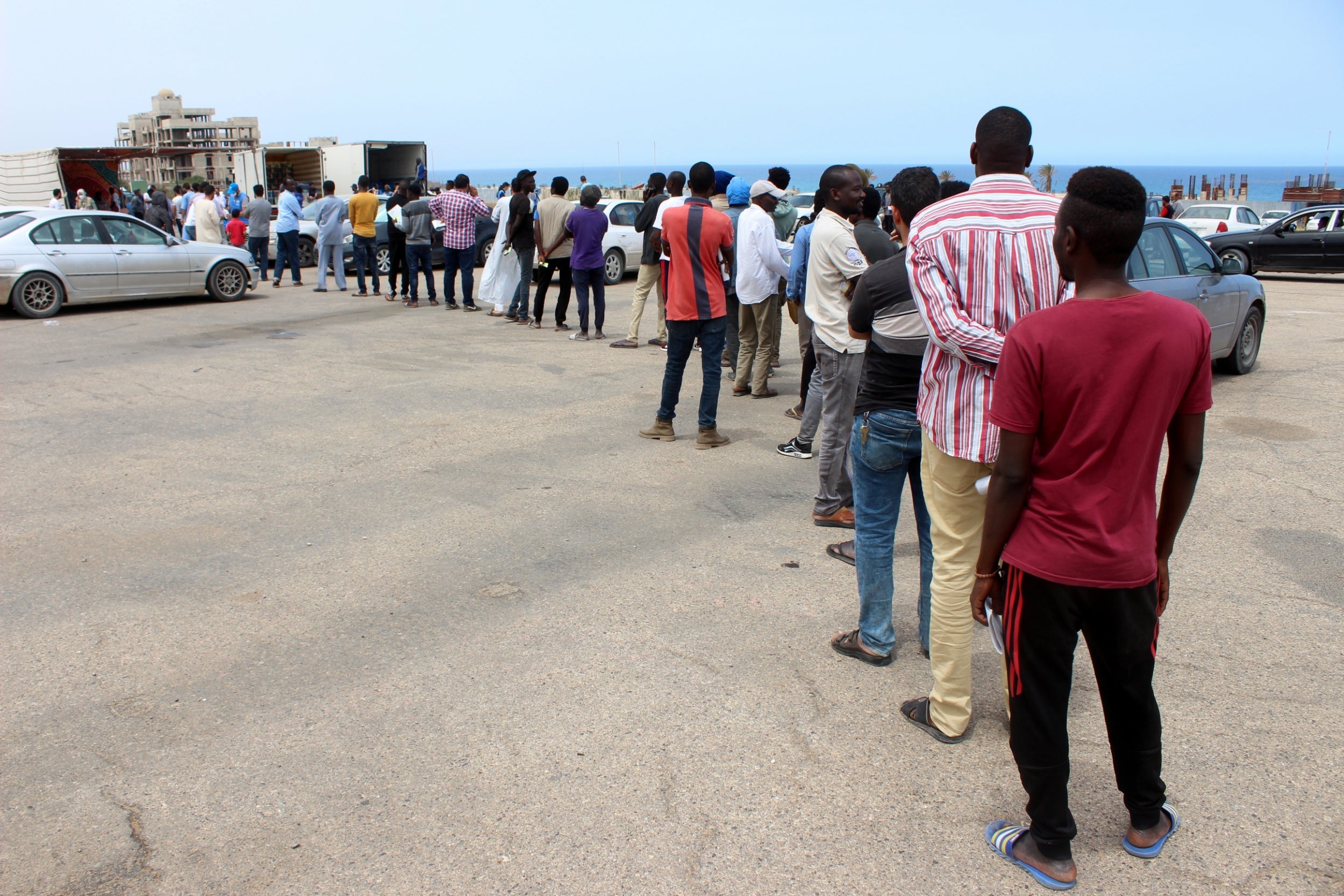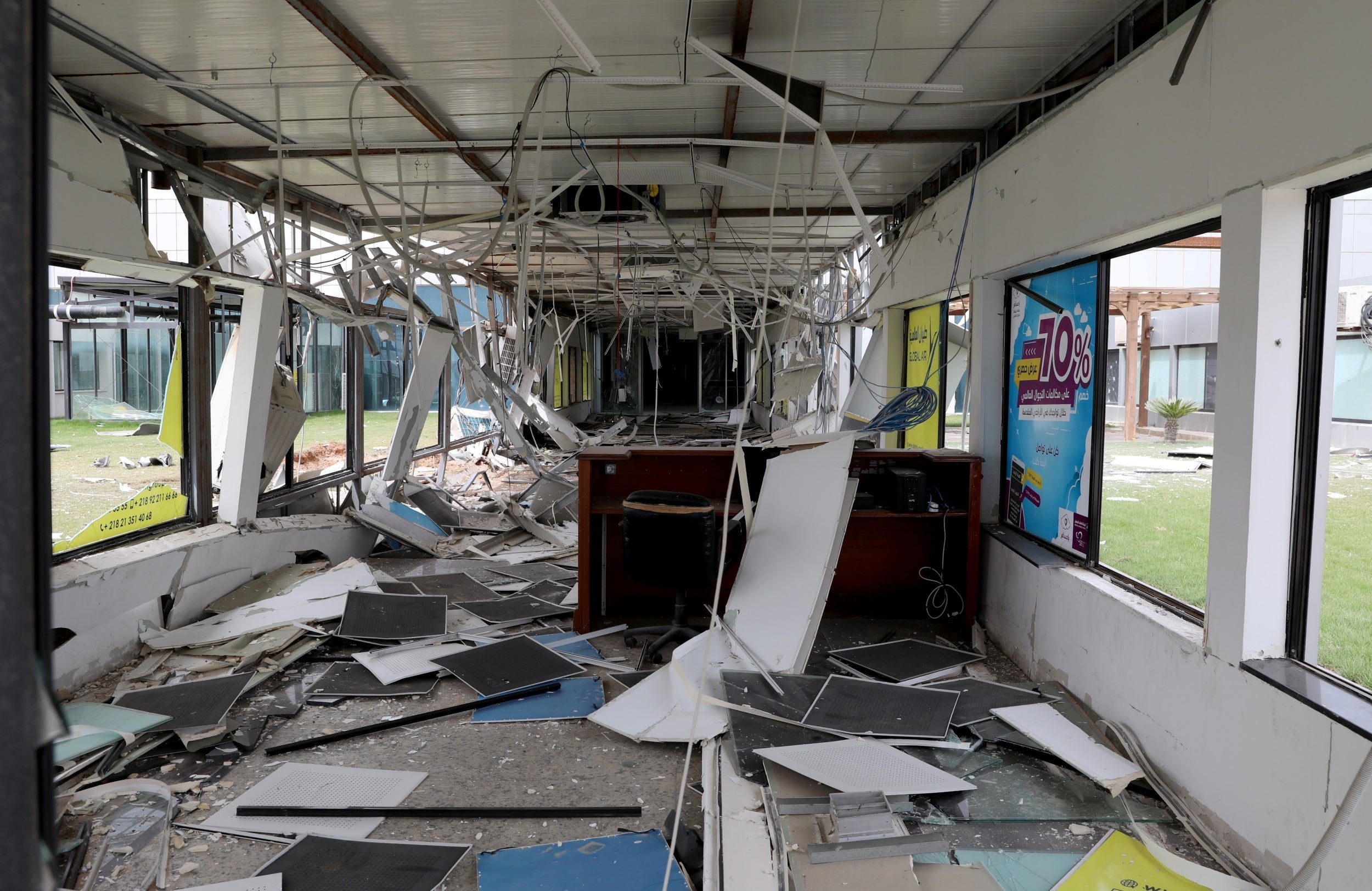‘No end in sight’ for Libya war after Turkey’s intervention corners rebel warlord
Turkey’s involvement has changed battlefield dynamics. But the war continues unabated, writes Borzou Daragahi


Turkey’s intervention in the Libyan conflict six months ago has altered the course of the war, boosting the prospects and military strength of the United Nations-backed Government of National Accord (GNA) in the capital, Tripoli, against the warlord Khalifa Haftar.
But Turkey’s deployment of troops, mercenaries and sophisticated equipment to help its Libyan allies has failed to lift Haftar’s siege of Tripoli, while emboldening his allies and pushing him to resort to more devastating air power. Air and artillery strikes on the capital this week killed and injured more than a dozen civilians.
Diplomats and analysts monitoring Libya say they’ve tracked surges of planes and ships loaded with military gear replenishing both sides in the conflict as the Muslim holy month of Ramadan draws to a close, potentially presaging a major confrontation.
“I see a major escalation coming because of the equipment and the people and the weapons that are coming into the country,” said an international official closely involved in Libyan affairs, speaking anonymously. “After Eid, it’s going to intensify,” the official said, referring to the festivities marking the end of Ramadan.
“There are hundreds of cargo containers coming from UAE,” the official said. “Russian military equipment and personnel are coming in. Mercenaries are coming in for both sides.”
The latest stage of the war in Libya has now stretched on for more than a year. It is a conflict between opposing Libyan camps grouped in the country’s east and west and their foreign backers. It has accelerated despite the coronavirus pandemic and international calls for a ceasefire.

The renewed Turkish intervention, which began late last year, has changed the fortunes of 76-year-old Haftar, putting him in the uncomfortable position of being on the defensive.
The Tripoli-based GNA is no longer in danger of falling, and Haftar’s allies are growing restless. Last month, Haftar declared a dormant peace process dead and proclaimed himself ruler of Libya, a move most analysts and diplomats describe as an effort to stave off challenges from his own erstwhile allies in Libya’s east and abroad.
He had promised supporters a quick victory, and appeared to be winning the war for Libya’s west last autumn with the help of UAE air power and Russian and other mercenaries.
But Turkey’s deployment of military personnel, drones, anti-aircraft systems and Syrian mercenaries has changed the balance of the war. Though the GNA has yet to push back Haftar’s forces from the front along Tripoli’s edges, in just a few months Turkey has spruced up the bands of militias that make up the core of the forces fighting for the GNA with professional training, battle plans and logistical systems.
“Every facet of Turkey being a Nato power comes into play,” said Jalel Harchaoui, a north Africa specialist at the Clingendael Institute, a think tank in the Netherlands. “The bottom line is it’s working, and that if you look at the behaviour of the GNA forces under Turkey, they are obsessed with cutting supply lines and avoiding heroic clashes.”
The GNA’s forces have recaptured coastal towns, encircled the warlord’s forces and threatened key pro-Haftar outposts.
In just one example of their newfound military capabilities, pro-GNA forces aided by Turkey managed in April to fend off and push back an attack by Haftar’s forces in Abu Grein to the east of the city of Misurata. All the while continuing an ongoing offensive hundreds of miles away to dislodge warlord’s forces from Wattiya airbase and at the same time defending Tripoli from any advances.
“You see behaviour and prowess that wouldn’t have been possible before,” said Harchaoui. “It’s basically being able to face artillery and use artillery and anti-tank tactics. Especially in the last four weeks, the Turkish intervention has changed the ethos of the pro-GNA forces.”
Turkey’s top goal now appears to be taking control of the Watiya airbase to the southwest of Tripoli. GNA forces have currently surrounded the massive facility, which is built to Nato standards and includes reinforced bunkers for equipment and personnel.
“The Turkish armed forces have built up enough military stocks in order to intervene in Libya,” said Yusuf Alabarda, a Turkish military analyst. “That is why the Watiya air base is so important. It can be used to bring all sorts of logistical material, arms, and support.”

Meanwhile, Haftar has not been able to boast of an unambiguous win for months. He has instead stepped up what international officials described as indiscriminate air and artillery strikes on Tripoli, including alleged attacks on or near hospitals treating Covid-19 patients, injuring at least 13 civilians.
At least 17 attacks on medical facilities, ambulances, health care workers and medical supplies have been recorded so far this year, according to the International Rescue Committee. Over the past year, the United Nations has verified 113 cases of war crimes violations, including the killing or maiming of children, and attacks on civilian infrastructure.
Turkey’s gambit has had diplomatic costs, straining relations with Haftar’s foreign backers, including France. On Monday, Paris signed onto a statement by Mediterranean and Arab foreign ministers condemning Ankara’s “military interference in Libya”, and demanding that Turkey “fully respect the UN arms embargo”, even as it gave Haftar’s arms suppliers a pass.
French policymakers say they want to avoid a “Syrianisation of Libya”, an intractable conflict that kills many and draws in international powers. “The more Turkey gets involved the more Russia will, and the momentum of all that would result for us Europeans outsourcing the management of important security challenges,” said a Western diplomat.
Turkey’s goal of using Libya to strengthen its bargaining position in pursuit of natural gas reserves beneath the eastern Mediterranean remains inconclusive.
But other than France, only Greece and Cyprus, which have had decades-long grievances with Ankara, few other Western nations have joined in criticism of Turkey’s intervention. The United States has receded from any role in Libya. Though it backs Haftar, Russia also maintains ties with the GNA and Turkey.
Claudia Gazzini, Libya specialist at the conflict-resolution advocacy organisation Crisis Group, describes “tacit sympathy” among European policymakers for the Turkish intervention, hoping that giving Haftar and his allies a black eye will draw them back to the negotiating table.
His decision to attack Tripoli scuttled months of preparation for international peace talks in the Libyan city of Ghadames, angering western policymakers and United Nations officials.
But Ms Gazzini said there was little sign that the Turkish involvement was bringing a resolution of the conflict any nearer.
“It’s too early to say that the Turkey intervention has changed the balance on the ground,” she said in an online briefing last week. “And there’s always a danger that they’re creating a constant state of escalation that creates a war with no end in sight.”
Join our commenting forum
Join thought-provoking conversations, follow other Independent readers and see their replies
Comments